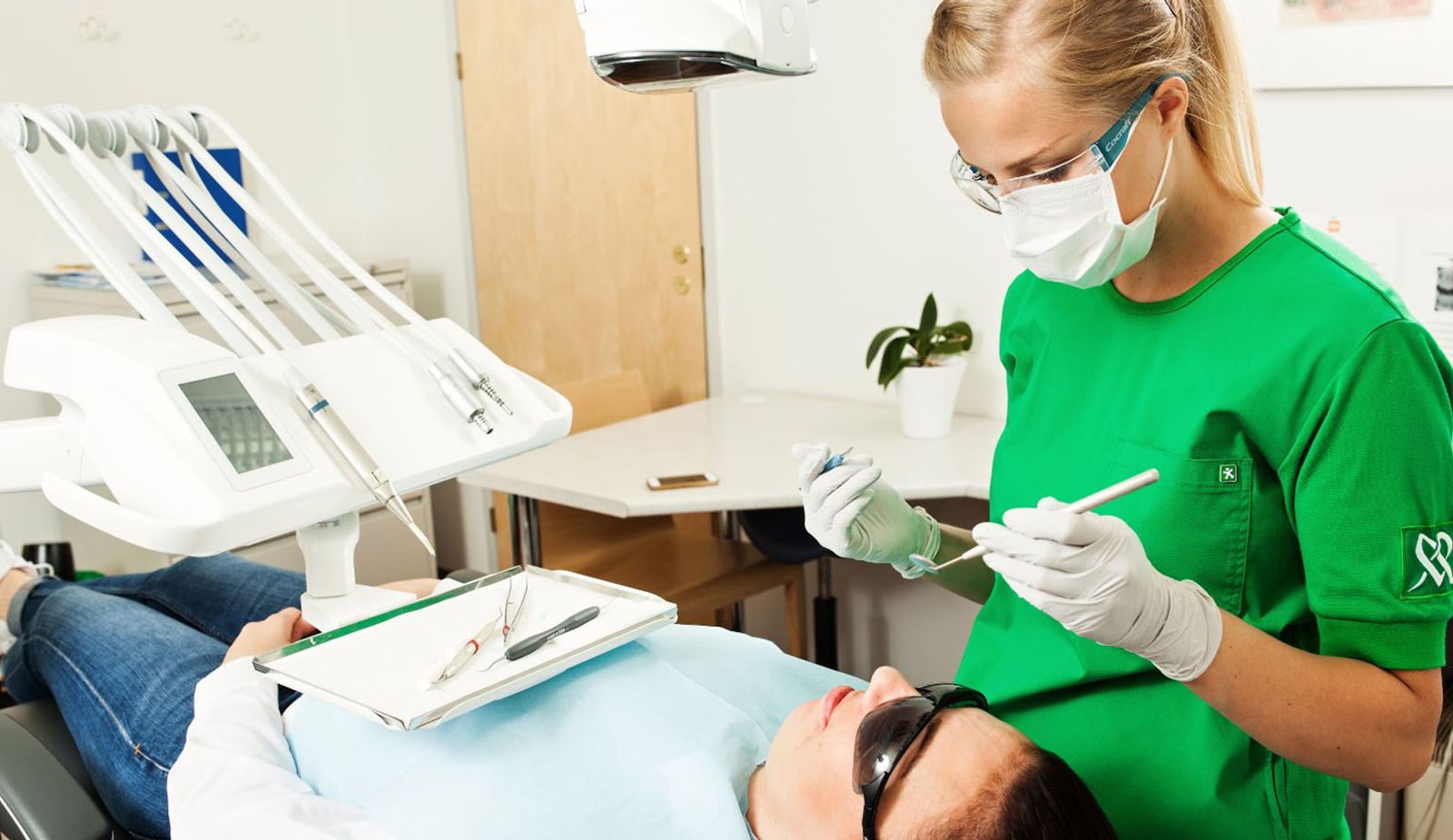

Oral health as part of work ability and occupational well-being
More than 70% of working-age Finns suffer from gingivitis, and about two-thirds of young adults show signs of early periodontitis. Both gingivitis and periodontitis are slightly more common in men than in women. Unfortunately, gum disease is a widespread problem.
Poor oral health, especially gingivitis and periodontitis, i.e. a disease of the connective tissue of teeth, has been found to affect overall health in many ways. If left untreated, gingivitis can progress to periodontitis in individuals who are prone to gum issues. Periodontitis damages the soft tissue of the gums and the surrounding jawbone. At this stage, the disease is no longer reversible and, if left untreated, can lead to tooth loss.
Oral health is an important part of overall health
Periodontitis has been found to increase the risk of cardiovascular diseases up to five times, and it is also an independent risk factor for atherosclerosis. In addition, poor oral health increases the risk of, for example, respiratory tract infections, memory disorders and some cancers. Periodontitis and type 2 diabetes have been found to have a bidirectional relationship. Diabetes increases the risk of developing periodontitis, and in individuals with diabetes, periodontitis can often be difficult to treat. On the other hand, periodontitis complicates the treatment of diabetes, but treated periodontitis, in turn, improves blood sugar balance in diabetic individuals. It should also be noted that up to 15% of sinus infections are caused by dental problems.
Prevention is the best, cheapest and easiest treatment. Timely dental care and proper self-care have a beneficial effect on health and well-being. In addition, a healthy mouth allows for timely surgery and the start of other medical treatments.
Occupational dental care is an important part of healthcare
Occupational dental care is an important part of comprehensive healthcare, and it complements occupational health care. A healthy mouth and good oral hygiene have a fundamental impact on health and well-being, and they directly affect employees’ performance and work ability.
Occupational dental care as an employee benefit is, in addition to pay, a good way to attract and engage employees. Employee benefits are also a good way to improve the company’s image in the job market. In addition to its tax-exempt status, occupational dental care is a tax-deductible expense for the company.
At Mehiläinen, we are committed to providing high-quality occupational dental care that supports the health and well-being of your employees. A healthy mouth is important for coping at work, and Mehiläinen’s comprehensive services help to maintain it. Learn more about occupational dental care and ask for more information on how we can help your workplace utilise our occupational dental care services.
The article was written by Mehiläinen’s Head Occupational Health Dentist Katriina Hjelm.

